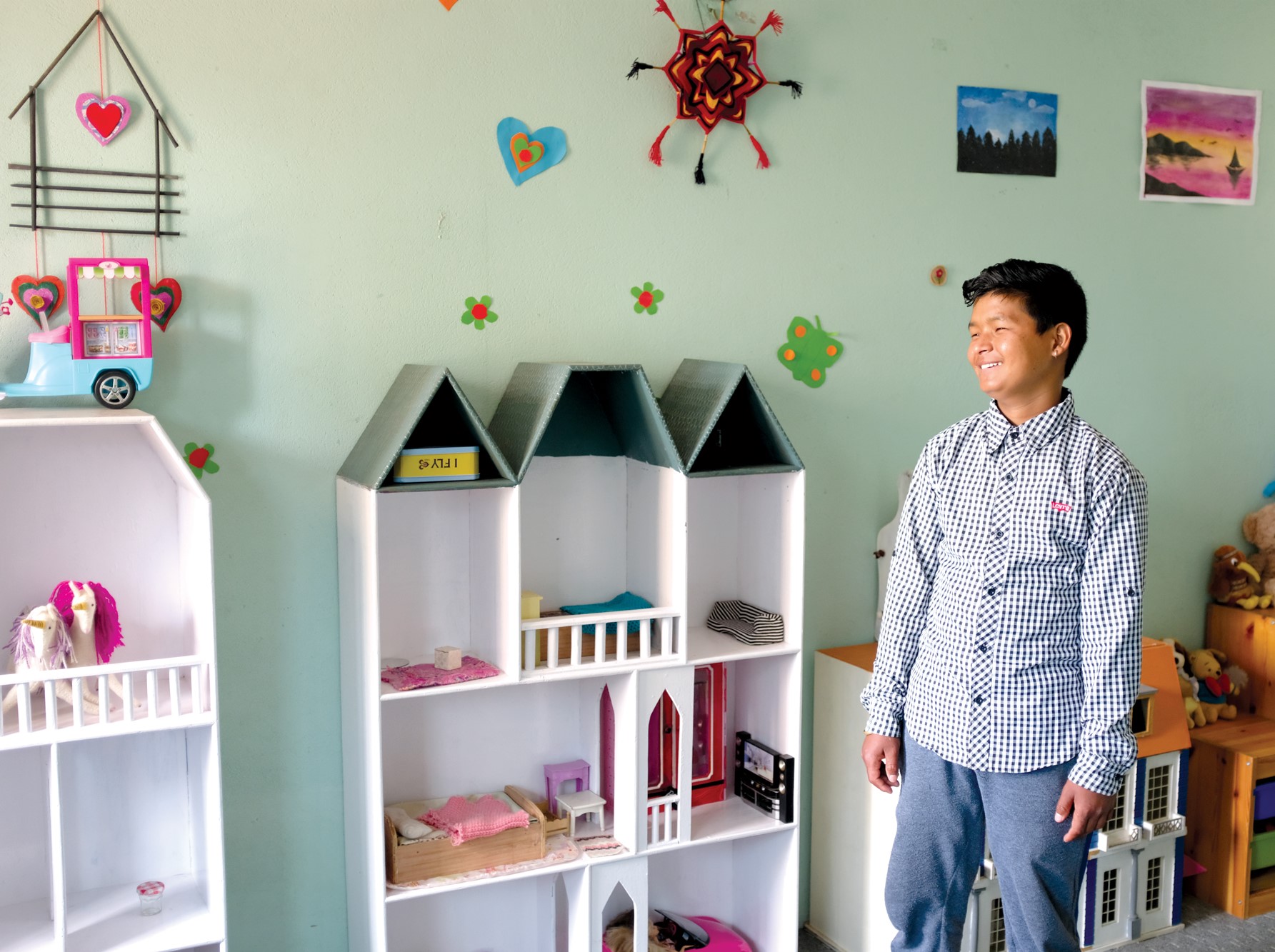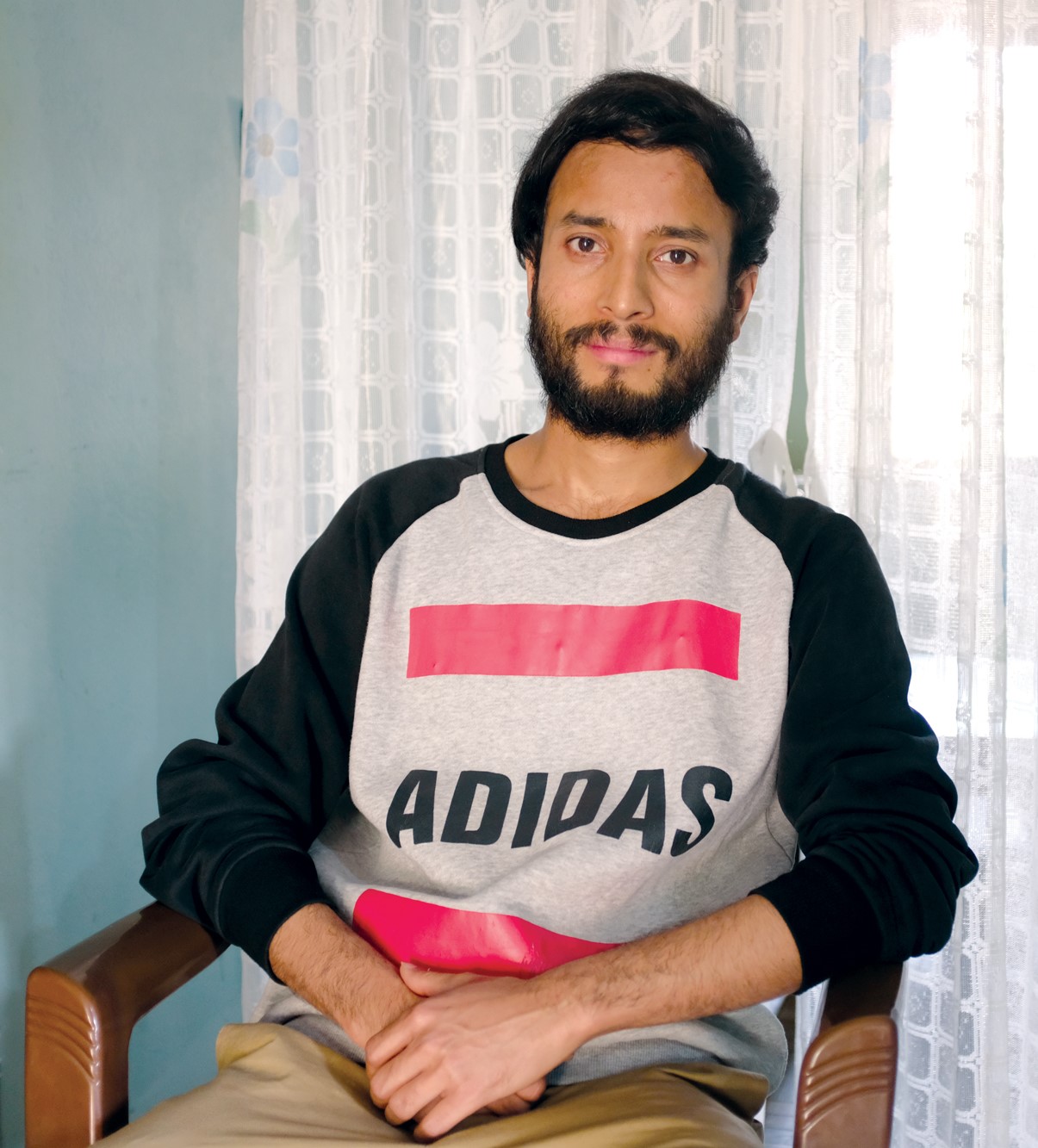It is not easy to take care of cancer patients. The task becomes harder still when these patients are little kids. Yet one non-profit, the Loving Heart Daycare Center, has taken up this Herculean task. The center located at Imadol, Lalitpur is the first and the only day nursery in Nepal specializing in taking care of children with cancer. Founder Samir Shrestha says the center is perpetually short of money. As such it has been able to open its doors only twice a week. Rents for two months are due. The search for a bigger, institutional donor has proven elusive. Still, at present, the center provides free service to 18 children aged 6-17.
There is still no complete cure of cancer, a group of diseases that are a leading cause of death around the world. Accurate data on cancer mortality, especially among children, are unavailable in Nepal. The WHO estimates that globally around 300,000 children, aged 19 years or below, are diagnosed with cancer each year.
“According to our estimates, the number of cancer patients in Nepal is increasing by 30,000-35,000 every year. Among them, 30 percent are children,” says Rudra Lal Kadariya, a member of the Cancer Council Nepal which is also associated with the Childhood Cancer International—an umbrella body of childhood cancer grassroots and national parents organizations.
Kadariya adds that cancer mortality rate is high in Nepal as most patients, especially children, are diagnosed only in the last stages.
Because of lack of awareness and high costs, regular screening is uncommon. In the case of children, leukemia is considered the most common non-preventable cancer, followed by brain and spinal cord tumors, neuroblastoma, retinoblastoma and bone cancer. Although children are more likely to be cured, the trauma of having to go through rigorous medical procedures can cause the family great suffering.
The stigma associated with cancer is also devastating, not only for the patients, but for their families and friends as well. Nepal lacks cancer awareness on many levels and the healthcare system is not well-equipped to diagnose and treat most patients.
“In an underdeveloped country like Nepal, cancer is not only a health problem, but also a socio-economic and psycho-social one,” says Shrestha.

Fighting spirits, loving hearts
On the ground floor of a two-and-a-half-story house in Imadol, Lalitpur, 12-year-old Govinda Mahara from Siraha and 15-year-old Lokraj Rokahi from Jumla are lost in their art. They are busy drawing animals and different shapes on what appear to be greeting cards. “I love drawing, painting and making greeting cards. What I don’t like is, going to the hospital,” says Mahara, who has been visiting the center for the past three months. “But who likes going to the hospital, right?” But his buddy Rokahi says he does not mind going to the hospital, if only to ask the doctor “what I should and should not do.”
They have to visit the hospital regularly, as both of them suffer from leukemia, a kind of blood cancer. Yet what they really love is to come to the Imadol-based Loving Heart Daycare Center, the first and the only day nursery of its kind in the country specializing in taking care of children with cancer. Children like Mahara and Rokahi have adorned the light green walls of the two rooms allocated for children’s recreational activities with their arts and crafts, and littered the soft grey carpet with pretty dollhouses, toy cars, white unicorns, a ukulele, stuffed animals, and paints and pencils.
Most children registered at the daycare—and there are 18 of them, aged 6 to 17—do not know what ails them. Nor are they aware that their caretakers have been short on the Rs 18,000 monthly rent for two months and that their next meal is subject to donations from good Samaritans.
“We opened the daycare center almost eight months ago and we have been running it with whatever donations we get,” says Samir Shrestha, the founder of the center. “But the struggle to keep the daycare running without a big donor is enormous.”
Twice a week
The free daycare center for children with cancer provides them with psycho-social support, counselling, healthcare training,
skill-building exercises, nutritional food as well as fun activities like birthday parties. Unfortunately, for lack of funds, Loving Heart is open only twice a week, says Shrestha. (The greeting cards Mahara and Rokahi were making will be sold to raise funds.)
“With this daycare, we’re not only helping the children but their parents as well. Life can be difficult for a family that has a child with cancer,” says Shrestha. “Ensuring the children’s physical and mental wellbeing can be a burden, especially for middle and low-income families,” adds Shrestha, who has been working voluntarily with children with cancer since 2005. For the families that are confused and distressed by the suffering of their children, the daycare provides a temporary shelter. Parents can leave their children for the day and rest assured that they are properly taken care of.
“We have to make sure that our surroundings are thoroughly clean because our kids are more vulnerable to infections,” Shrestha says. “There is also the need to protect them from pity or condescension from others. Our children don’t like strangers coming in and taking pity on them.”
In 2006, together with a group of like-minded friends, Shrestha had registered the Dirghajeevi Voluntary Group, under which the Loving Heart Day Care functions. They were actively involved in the care and support of children at the cancer ward of Kanti Hospital until 2015, when certain changes in policy and management forced them to stop volunteering there. Then came the idea of opening their own daycare center.
Most children registered at the daycare—and there are 18 of them, aged 6 to 17—do not know what ails them
Students and survivors
“It was not easy to begin with,” Shrestha says. “No one wanted to rent out a place to us initially, fearing that cancer is a communicable disease.” The other problem was finding funds to operate the daycare, Shrestha informs. Although they have received donations from foreign individuals and agencies, funding has not been substantial or consistent. They expect support from the local communities to make the non-profit organization sustainable.
The volunteers at Loving Heart have been students and survivors of cancer who want to contribute to improving the children’s lives. Sandhya Ghorsaini, a 16-year-old student from Bhaktapur, is one such survivor and volunteer. Ghorsaini was also diagnosed with leukemia at a tender age of three. She was undergoing treatment at Kanti Hospital when Shrestha met her. They instantly bonded. “I like spending time with the children and feel privileged that I can bring small changes in their lives,” says Ghorsaini, who took her SEE exams this year. “I want to continue studying and become a doctor.”
With part-time volunteers and silent partners, it is up to Shrestha to commit all his time for the organization. While he gets help from his wife Sharmila, an aspiring painter, Shrestha runs the Loving Heart Daycare pretty much on his own. With no other income than what the organization manages to pay him, Shrestha’s livelihood depends on donations and charity—so much so that he does not want to admit his two-and-half-year-old son Samarth to a play school. “I will enroll him straight into a regular school,” he says, “The play school fees are exorbitant. I cannot afford them. I will homeschool him instead.”
Chitwan, cycle and cancer
With a life dedicated to helping children and families in need, Samir Shrestha, 34, has a tragic story of his own. Here he chronicles his story in his own words: I was 12 when I lost my father in a motorbike accident. We were a well-to-do family in Chitwan but the sudden demise of my father changed that. I managed to complete my SLC from Chitwan and then came to Kathmandu to live with my uncle. My basic needs were met, but it was never like having my own father around. My uncle got me a job at his friend’s. Back then, on my way to work and back, I used to notice a number of street children and orphans, some picking garbage and others working as helpers in Safa Tempos.
I compared their lives to mine and realized that even though I came from a fairly wealthy family with people there to take care of me, my life was not as easy as when I had my father around. These street children—some orphans, some runaways and some discarded by their families—led more difficult lives than I did. So I wanted to do something for them.

But I was really young and didn’t know how I could help them. Having grown up in the Tarai, I did know how to cycle though. So I decided to tour the SAARC countries on my bicycle to raise awareness and funds for Kathmandu’s street children. I was inspired by Nepali cyclist Puskar Shah, who was on a world tour at the time. I got a chance to meet him. With his encouragement and my determination, I started cycling in 2004, at the height of the Maoist insurgency. I first toured Nepal and then India and Bangladesh. But I was forced to stop owing to political and security issues.
Then, in 2005, I saw an advertisement asking for volunteers at the cancer ward of Kanti Children’s Hospital. I joined the team and that became a life-changing moment for me. I realized that while there were hundreds of organizations working for street children, there wasn’t any support system for children with cancer. Since then, my whole life has been dedicated to helping them.











